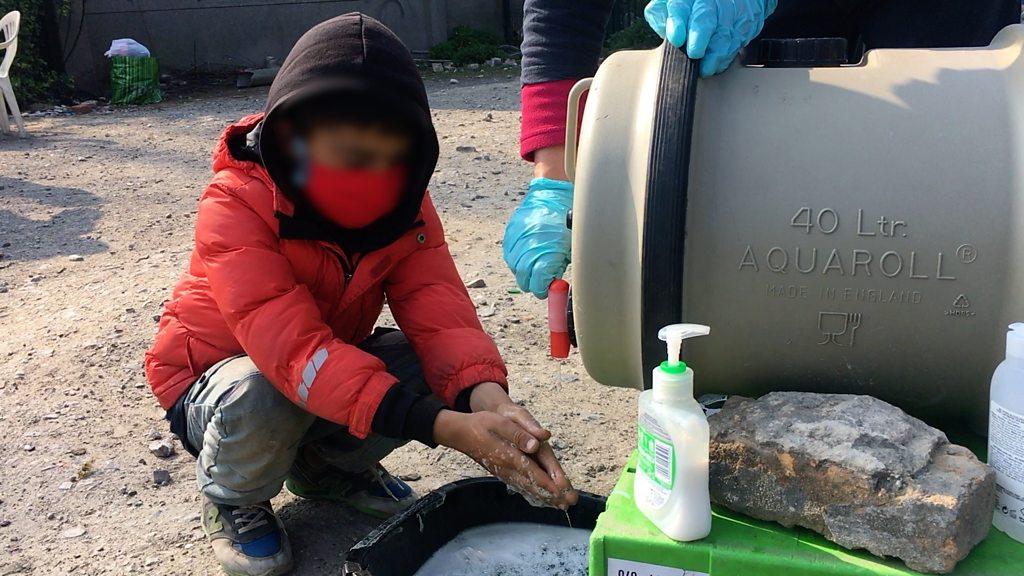Channel crossings: Why are people talking about migrants crossing the English Channel?
- Published
- comments
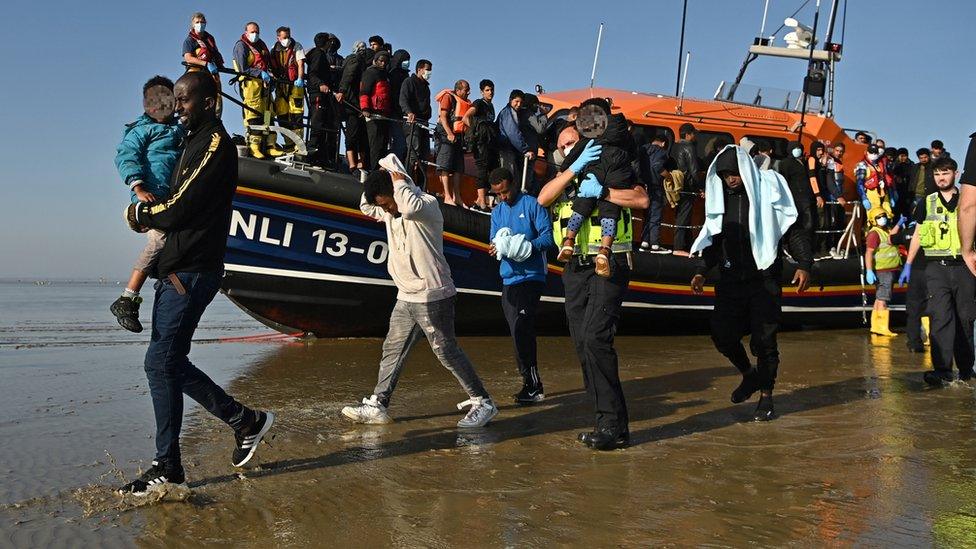
Migrants with children are escorted after being picked up by a lifeboat while crossing the English channel at a beach in Dungeness, southeast England
The UK government has been meeting with French officials to work out what to do about thousands of migrants trying to make the dangerous trip across the English Channel from France.
Often vulnerable people are making the journey in small, overcrowded boats.
This year more than 12,600 people have travelled across the stretch of sea between France and the UK.
And, this week alone, record numbers have made the crossing with over 1,500 travelling to the south coast of England by boat so far. According to the Home Office, the UK authorities rescued or intercepted 456 people on Tuesday and 301 people Wednesday.
Experts say warmer weather and better conditions along the Channel means more migrants are attempting to make the journey.
But the two countries are arguing about how best to stop it happening.
Ministers' meeting
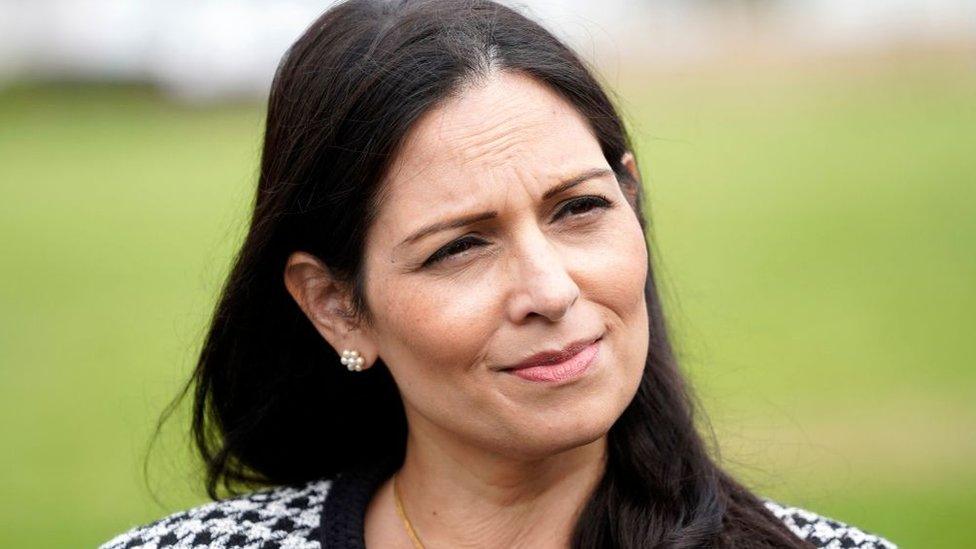
The UK Home Secretary Priti Patel says stopping illegal crossings was an "absolute priority" for the British public
This week, politicians from several countries have been meeting in London.
The UK Home Secretary Priti Patel discussed the situation in the Channel on Wednesday with French interior minister, Gerald Darmanin but they failed to agree on a joint plan to prevent the crossings.
After the meeting, Priti Patel said that talks had been "constructive" and that stopping illegal crossings was an "absolute priority" for the British public.
Now in an argument over how to handle the crisis, the UK Home Secretary Priti Patel is reported to be planning to send migrant boats heading to the UK, back to France.
Migrants have different reasons for trying to come to the UK - many come from countries like Afghanistan, Syria and Iraq where homes have been destroyed or people need to escape for their safety.
Others are coming to the UK illegally in hope of finding more opportunities.
Her plan means boats will be turned around and forced back into French waters, something that France is likely to be against, with authorities saying it's dangerous for the migrants making the journey.
The UK government had already promised to give France £54m to support efforts to of boost coastal patrols along the channel. But, Ms Patel has threatened to stop that money, because of the number of crossings taking place.
What are the current rules?
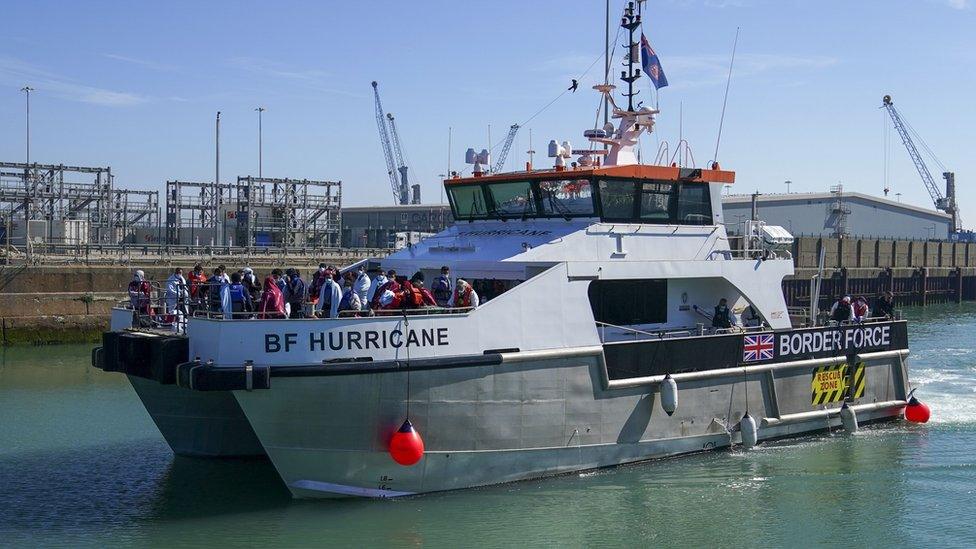
Under international maritime law, people at risk of losing their lives at sea must be rescued.
If migrants are found travelling in UK national waters, it is likely they will be brought to a British port.
If they are in international waters, the UK will work with French authorities to decide where to take them.
Each country has their won search-and-rescue zones.
It's also been reported that the turnaround tactics would only be used in "very limited circumstances" for sturdier, bigger migrant boats and only when it's safe to do so.
But in a letter to the home secretary ahead of their meeting, Mr Darmanin said: "Human lives at sea takes priority."
Ms Patel will host the final day of a meeting between politicians on Thursday, with illegal migration expected to be the focus of discussions.
Why is the trip so dangerous?
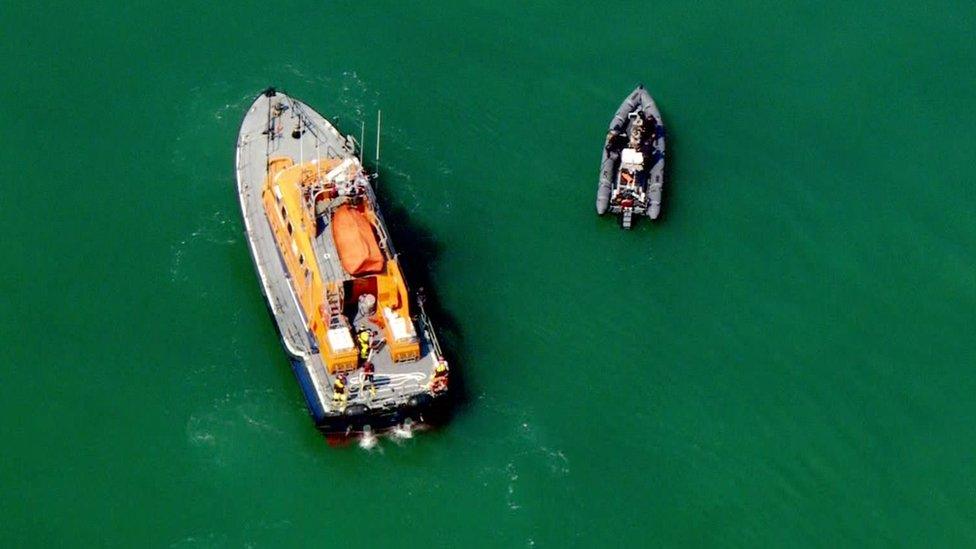
A large lifeboat helping of a small boat of migrants
Boats carrying migrants often include passengers who are babies or children - and they're crossing one of the most dangerous and busy shipping lanes in the world, meaning there are very large boats travelling in the area.
The boats people are making the journeys in are often very small and unsafe and the water is very cold.
For several years organised crime gangs have created an entire industry in smuggling people to different countries. Families sometimes save up huge sums to send just one relative to Europe.
The route across the channel is often used by migrants who have made it to mainland Europe but want to travel on to the UK and reach the port of Dover in Kent.
What happens to migrants who reach the UK ?
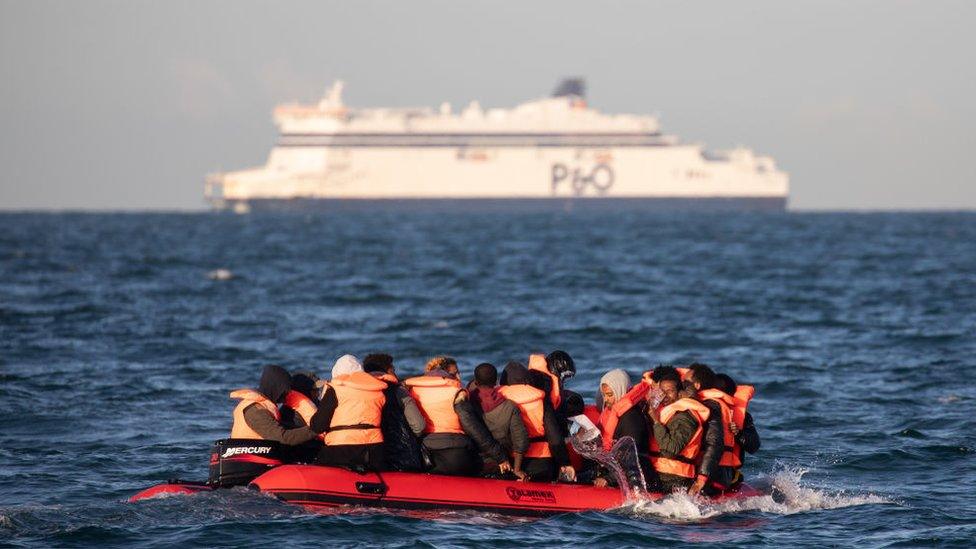
When migrants are picked up crossing the Channel, they are typically taken by the UK Border Force to short-term holding centres.
If someone makes an asylum claim, and they have no money, they might then be placed in accommodation anywhere in the UK. This is paid for by the UK Home Office while the application is considered.
An asylum seeker is a person who flees their home country, enters another country and applies for the right to international protection and to stay in that country.
In the UK, asylum seekers have limited rights. For example, asylum seekers aren't allowed to work. They must rely on government support. Housing is provided, but asylum seekers can't choose where it is.
Others might be kept in detention buildings ahead of a plan to send them back to Europe.
Under a previous EU deal, the UK had the right to send back anyone who is seeking asylum if they could have claimed asylum in another country along the way.
But after Brexit, but the UK is no longer part of this arrangement and hasn't yet agreed a new scheme to replace it.
What has the reaction been?

Refugee and migrant charities say they are opposed to any plan to turn back migrant boats.
Charities have urged the UK to take a "more humane and responsible approach" towards asylum seekers.
Human rights organisation, Amnesty International UK has said people have the right to seek asylum in the UK and "only make dangerous journeys and rely on smugglers because there are no safe alternatives made available to them".
The Home Office said it continues to evaluate and test a range of safe and legal options to find ways of stopping small boats making the journey.
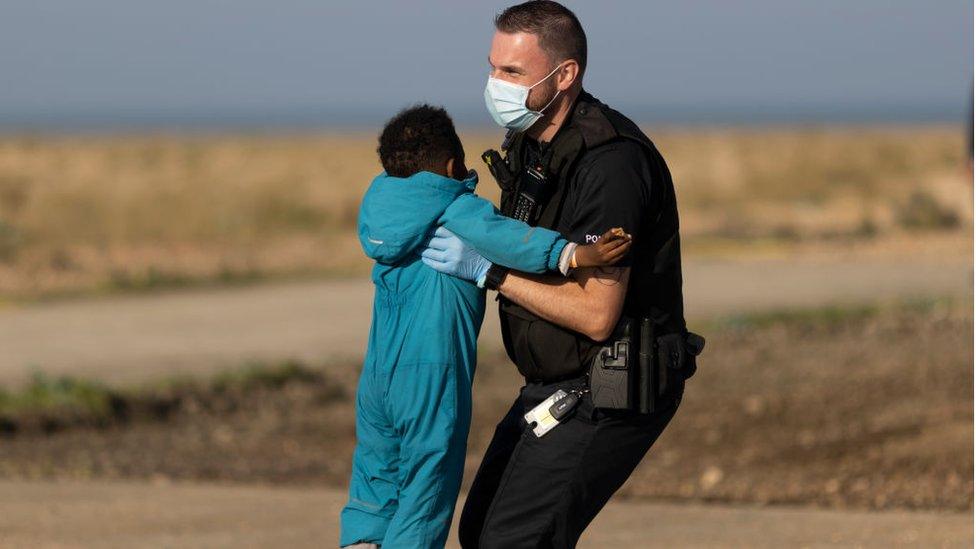
A border force official carries a migrant child after arriving on Dungeness beach on 7 September
UK commander Dan O'Mahoney said: "We've seen a surge in illegal migration across Europe with people-smugglers organising waves of departures from French beaches.
"This unacceptable rise in dangerous crossings is being driven by criminal gangs and a surge in illegal migration across Europe. We're determined to target the criminals at every level."
Lisa Doyle, from the Refugee Council, said: "Instead of seeking to punish or push away people seeking safety because of the type of journey they have made to the UK, (the government) must create and commit to safe routes."
She added: "While there is war, persecution and violence, people will be forced to take dangerous journeys to seek safety. We are talking about ordinary men, women and children who are forced to flee their home through no fault of their own."
- Published22 July 2021

- Published15 November 2021
